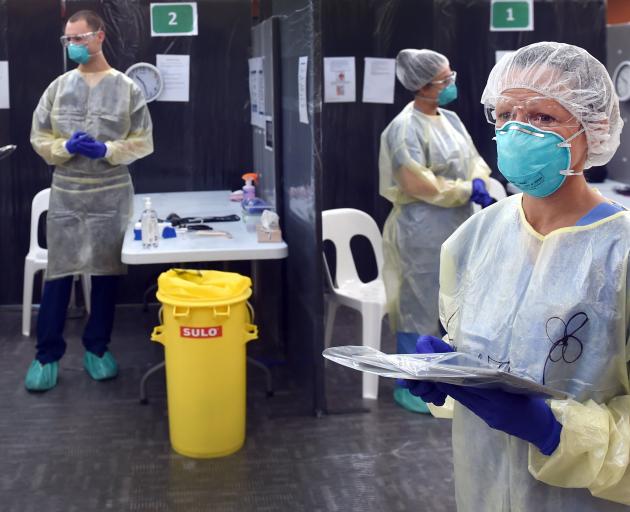
Time for return to normality
Is it time to move to Level 1, asks Richard Macknight.
New Zealand has set out to save lives and our economy by setting out to eliminate Covid-19 wherever it is found.
We can be proud of our response to Covid-19. Scientists have been centre-stage providing advice to guide the Government’s decisions.
The fantastic news is that in New Zealand, the Covid-19 virus is on the brink of extinction. We should be celebrating, or at least publicly acknowledging the fact. This is the reason why it is safe to increase gatherings to 100 and why we should move to Level 1 soon.
So how have we gone from being locked down at home in fear of catching Covid-19 from our next-door neighbours, to now being able to dine with everyone on our street (not that it’s happening until restaurants are allowed to split the bill)?
Starting in late February, nearly 500 people with Covid-19 entered New Zealand.
Mostly, they only passed it on to close family or friends. Very occasionally it spread further, resulting in larger clusters of infection within the community.
However, for well over a month, every single new case has been a close contact of a known case, with many linked to one of the Covid-19 clusters.
Of the 1504 Covid-19 patients, 97% have recovered and can no longer spread the disease.
Only 22 people are regarded as active cases, and most of these people caught the virus some time ago, meaning it is very unlikely that they are producing virus that can infect others.
Even if they were infectious, these patients are already in self-isolation. Systematic testing of any potential contacts of these patients, as has been occurring, has prevented further spread of the disease.
So why are we still in Level 2? The worry is that there are people in the community with Covid-19 that we don’t know about. How likely is this? Early April was the last time a case that could not be linked to an existing case was identified.
While we are told that the transmission cycle of Covid-19 is two weeks, the average transmission cycle is much shorter — about five days.
This means that if community transfer were occurring, more than nine cycles of infection would be possible, and we would expect a large number of cases in the community.
Despite large-scale and widespread testing, no community transmission has been found. This is why it is safe to go back to school and work.
So do we need to wait to be sure there are no hidden pockets of Covid-19 and to be confident moving to Level 1? Prime Minister Jacinda Ardern plans to announce the timing of our move to Level 1 on June 22 — this is a very cautious approach.
The science says we could move to Level 1 now. The truth is, Covid-19 is not a disease that lingers. The reason for its devastating effect overseas is that people are highly infectious within days of getting the virus, meaning the virus spreads rapidly.
However, after a week or so virtually all Covid-19 patients stop spreading the disease (even though they might still test positive). We continue to have no new cases as lockdown and self-isolation quickly robbed the virus of new victims, and it has disappeared.
This is because outside the human body, the Covid-19 causing virus is very fragile. It is destroyed by soap or sanitising gel, and it doesn’t survive long on surfaces — 72 hours at most.
It needs to be replicating within the human body to continue to exist. Once it stops infecting, it is gone for good.
We still have to be vigilant to stop someone from overseas bringing it into the country again — this is what Level 1 is for. The way to mitigate this risk is to continue the intensive testing for Covid-19. This is currently occurring and will be a mainstay of Level 1.
The most important thing we need to do as a country is to ensure that anyone with flu-like symptoms stays home and gets tested.
Just as science supported a rapid move to lockdown, science supports the move to Level 1 now.
New Zealanders can be reassured that currently the risk of Covid-19 is extremely low and we can go about our lives without fear. Supported by ‘‘gold-standard’’ testing and tracing, our social and economic recovery relies on us confidently returning to a normal life.
■Prof Richard Macknight works at the University of Otago’s department of biochemistry.